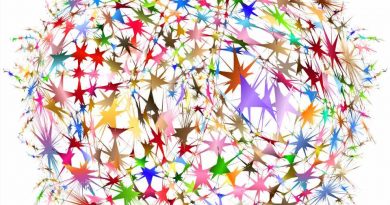Juice cleanse may be ‘damaging to health’ – how it could increase risk of diabetes
This Morning: Dr Sara on the pros and cons of juice cleanses
We use your sign-up to provide content in ways you’ve consented to and to improve our understanding of you. This may include adverts from us and 3rd parties based on our understanding. You can unsubscribe at any time. More info
A juice cleanse is a diet where you consume nothing but juices containing vegetables, fruit and other healthy items such as cashew nuts. “It’s about flooding your system with an abundance of incredible nutrients,” claims Kara Rosen, founder of a juice brand called Plenish. “On a cleanse, you’re abstaining from eating solid foods, but it’s also about the other thing that you’re not putting into your body (coffee, sugar, alcohol, and stimulants) and getting lots of hydration,” she added. The benefits of the diet are said to be numerous. Jenny Hardwick, a nutritionist at Plenish, claims the diet can “aid energy levels”, help with weight loss and bloating. But other nutritionists are sceptical.
Talking with Express.co.uk, some nutritionists have contested the idea that juice cleanses “detox” the body at all, and believe it can even “end up damaging our health”.
Rachel Clarkson, a reviewed dietician and nutritionist and founder of The DNA Dietician, said: “The human body has a complex detoxification system in the liver, kidneys, lungs and even skin that are constantly cleansing the body, ridding it of toxins and detoxifying it of any unwanted materials 24 hours a day.
“No amount of drinking juice will aid with this process. Sadly, juice cleanses have zero scientific evidence to back up their use and are just pseudo-science wellness and marketing claims.”
According to some nutritionists, aside from having little evidence to show they flush toxins from the body, juice cleanses are likely to be detrimental to weight loss in the long term. Studies have even linked juice cleanses to a higher risk of diabetes.
READ MORE: Hair loss: Three ‘hair-care’ habits found to be ‘responsible’ for permanent hair loss

“Ironically, if we consistently take a large number of herbal supplements and/or fast it can actually end up damaging our health,” said Tamra Willner, nutritionist for NHS partnered health brand Second Nature.
She adds: “As detox diets mainly consist of juices, fruits and vegetables, the lack of protein will cause your muscle to waste away.
“So, while you’ve lost overall weight (which appears good on the surface), you’ve also lost muscle mass (which is bad). This will reduce your longer-term metabolism, meaning that you will burn fewer calories at rest.
“The goal of weight loss is to reduce body fat while maintaining muscle levels.”
One study published in August 2013 in the British Medical journal found that drinking fruit juice was associated with a higher risk of type 2 diabetes. Eating whole fruits, like blueberries, apples, and grapes, on the other hand was linked with a reduced risk.
“Juice cleanses also contain no protein or fibre, which can result in loss of muscle mass and huge spikes in blood sugar if the juice is predominantly fruit,” explained Clarkson from The DNA Dietician.
“This spike in blood sugar is quickly followed by a crash in blood sugar levels, making you crave sugar, which increases feelings of irritability and hunger and decreases energy and focus.”

Furthermore, according to Clarkson, they can also result in nutrition depletion as the body can’t absorb many vitamins due to the lack of fat in the juices.
“Fat-soluble vitamins found in food (A, E, K, and D) can’t be absorbed by the body when you’re on a juice cleanse due to the lack of fat in the juices,” she said.
But while a juice cleanse might not be healthy itself, the idea of reducing consumption of unhealthy foods is.

Willner offers her advice to people who want to lose weight safely: “The fastest way to lose weight and keep it off in the long term is to reduce the number of ultra-processed foods (cakes, crisps, biscuits) and refined carbohydrates we’re eating (white bread, white pasta, white rice).
“Instead, consider building your meals from protein (chicken, tofu, fish, eggs), healthy fats (olive oil, avocado, nuts) and non-starchy vegetables (broccoli, peppers, spinach etc).
“If you are truly set on doing a’ detox diet’, consider juices or foods that are vegetable-based, rather than fruit-based, to reduce the potential spikes in blood sugar levels, and avoid particularly strenuous exercise whilst your energy levels are low.”
Source: Read Full Article



